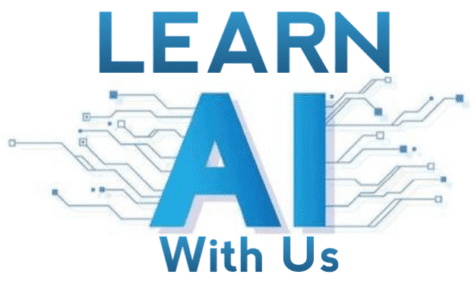Top 10 Applications of Natural Language Processing in Everyday Life
Introduction to Natural Language Processing (NLP)
Top 10 Uses of Natural Language Processing in Daily Life
What is NLP?
Think of attempting to teach a computer how to interpret and communicate in human language — that’s basically what NLP does. Natural Language Processing is an area of Artificial Intelligence that assists computers in reading, comprehending, and communicating in human language. It fills the gap between machine understanding and human communication.

Top 10 Uses of Natural Language Processing in Daily Life
Why NLP Is Important in Today’s World
In the modern world of busy digital lives, communication occurs everywhere — emails, voice commands, messages, and more. NLP enables devices and apps to understand all that and assist us better. It’s the unseen technology behind the scenes that simplifies our lives, smoothes them, and makes them a little bit magical.
- Virtual Assistants and Smart Speakers
- Everyday Conversations with AI
When you speak, “Hey Siri, what’s the weather like today?” you’re employing NLP. Your virtual assistants Siri, Alexa, and Google Assistant all depend a great deal on NLP to decode and react properly to your voice inputs.
How NLP Makes Siri, Alexa, and Google Assistant Smarter
NLP dissects your words, interprets the intent, and retrieves the right answers. These assistants learn too, as time passes, adapting to your way of speaking, accent, and tastes — all because of machine learning models and NLP.
- Language Translation Apps
Shattering Language Barriers in Real Time
Planning a trip abroad or talking to someone who doesn’t share your language? Mobile apps such as Google Translate or DeepL employ NLP to translate either spoken or typed text instantly.
NLP Behind Google Translate Scenes
The app employs statistical and neural NLP models to read grammar, syntax, and context first before providing a translated version that actually makes sense — and not word-for-word nonsense.
- Spam Filters and Detection by Email
NLP as Your Email Gatekeeper
Marvel at how your email knows to send suspicious offers straight to the spam folder? That’s NLP working behind the scenes.
How It Reads Spam Language
By analyzing word patterns, tone, frequency of certain phrases, and sender reputation, NLP helps your inbox stay clean and focused.
- Sentiment Analysis on Social Media
Knowing the Internet’s Mood
Ever noticed how brands react fast to trending topics or viral tweets? That’s possible through NLP-based sentiment analysis.
How Brands Use It to Monitor Reputation
NLP looks at thousands of posts to identify if the overall tone is positive, negative, or neutral — providing businesses with real-time feedback on how others feel about them.
- Predictive Text and Autocorrect
Smarter Typing With Fewer Typos
Typing a message and your phone autocompletes the next word? Or corrects that “teh” to “the”? Thank NLP.
NLP in Your Smartphone Keyboard
It’s learning your typing patterns, sentence formation, and most oft-copied words to facilitate quicker typing and instinctiveness.
- Customer Service Chatbots
24/7 Support That Feels Human
Those tiny chat windows on websites? Many are powered by AI chatbots driven by NLP.
NLP Training to Understand Human Queries
Chatbots employ NLP to read your question, identify intent, and provide a suitable, usually human-sounding response — sometimes even resolving your issue quicker than a human agent.
- Voice-to-Text and Speech Recognition
Converting Speech into Action
Taking dictation, capturing lectures in writing, or messaging hands-free? That’s NLP in action.
Accessibility and Productivity Boosts
For individuals with disabilities, voice-to-text is a vital accessibility feature. For everyone else, it’s just ridiculously convenient.
- Personalized Recommendations
NLP in Netflix, Spotify, and YouTube
What you view or listen to provides hints about your taste. NLP reviews your content consumption and allows platforms to provide just what you may like next.
Knowing What You Like and Why
It doesn’t just look at what you clicked — it reads titles, descriptions, reviews, and user behavior to customize your feed as if constructed specifically for you.
- Online Search Engines
How NLP is Making Google Smarter Day by Day
Ever search for something vague on Google and get the exact result anyway? That’s NLP magic.
User Intent and Context Understanding
NLP enables search engines to look beyond keywords. It knows what you actually want, your browsing history, and even where you are so that answers can be further refined.
- Health and Medical Records
Breaking Down Doctor Notes
Physicians write scribbly, shorthand notes. NLP enables digitizing and deciphering them for improved understanding.
NLP Assisting in Patient Care and Diagnostics
From summarizing patient history to detecting early signs of disease in records, NLP is transforming how healthcare professionals make decisions.
The Future of NLP in Everyday Life
Where We’re Headed Next
Voice cloning, real-time multilingual meetings, and emotion-aware AI — the possibilities are endless. NLP will soon power more intuitive, emotionally intelligent, and context-aware systems.
Ethical Use and Privacy in NLP
Greater power brings greater responsibility. Developers and companies need to prioritize ethical AI practices to prevent misuse, bias, or data breaches as NLP expands.
Conclusion
From conversations with your virtual assistant to receiving medical assistance, NLP quietly drives much of our digital landscape. It’s not technology for technology’s sake; it’s about making human experiences better. The more advanced NLP becomes, the simpler it is to communicate, engage, and flourish in our digitally-bound lives.
FAQs
- Which industries gain the most from NLP?
Healthcare, finance, e-commerce, education, and customer service are all using NLP to enhance communication, efficiency, and automation. - Is NLP synonymous with AI?
NLP is a branch of AI. While AI covers a wide area, NLP is more concerned with making machines learn and process human language. - Can NLP comprehend slang or local dialects?
Yes, to some extent. With increasing training data and exposure, NLP models are getting better at reading slang, idioms, and regional phrases. - How safe is data that goes through NLP?
It all depends on the implementation. Ethical NLP use cases adhere to stringent data privacy standards and encrypt personal data to protect users. - Will NLP replace human jobs?
NLP will replace repetitive work, but it’s also generating new employment opportunities in AI engineering, data science, and human-AI collaboration.

